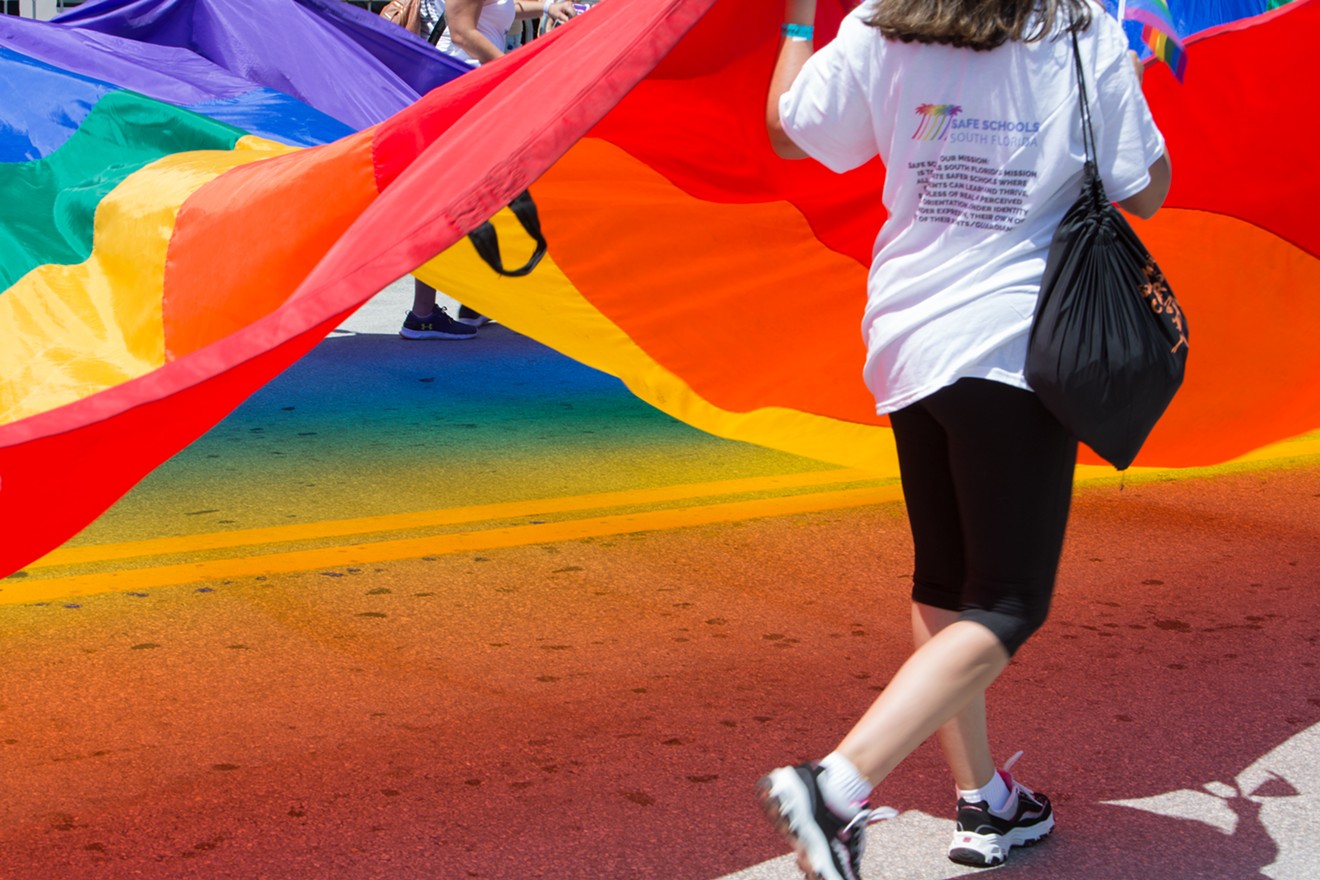Yesterday, the city issued a press release reminding folks of the ceremonial raising of the Pride progress flag tonight, promising attendees the chance to take in the sight of Miami Beach’s — insert long, exasperated sigh — “most glamorous parking garage as it is transformed into rainbow colors.”
Here comes the onslaught of co-opted rainbow flags and branded koozies from corporations that insist they recognize the plights, contributions, and history of LGBTQ+ people.
“Love is love!” Democratic lawmakers and your well-meaning straight friends and relatives will declare on their Instagram stories.
And after years of Gay Contemplation, I am still asking: What in the hell does “love is love” mean?
If you’ve asked someone in recent years what comes to mind when they encounter the phrase, they probably brought up the award speech — yep, that one — heard ’round the world.
Five years ago, on Broadway’s biggest night, the man of the moment stood on the stage of a packed Beacon Theatre.
It was June 12, 2016, and as he accepted yet another Tony for Hamilton (of course), Lin Manuel-Miranda clutched a piece of paper bearing a sonnet, his voice cracking as he invoked Pride while his wife watched from her seat.
“We rise and fall and light from dying embers, remembrances that hope and love last longer. And love is love is love is love is love is love is love is love is love, cannot be killed or swept aside.”
Delivered barely a day after a gunman murdered 49 people inside Pulse, a gay bar in Orlando, his words moved the crowd to tears and rapturous applause and eventually took on a life of their own.
The cultural icon’s remark drew universal praise and drew international headlines and — in the days, weeks, months, and years that would follow — trumpeted from the rooftops, inspiring countless T-shirts and corporate Pride merch.
How could it not? The heartfelt moment appeared raw and genuine, an ethereal sentiment that could be universally embraced in the shadow of unspeakable darkness and numbing loss.Perfect @Lin_Manuel LOVE, LOVE, LOVE!
— Oprah Winfrey (@Oprah) June 13, 2016
To be clear: Miranda didn’t coin the phrase, nor was he the first person to employ it in the context of expressing solidarity with LGBTQ+ causes.
I even asked University of California-Davis linguist Eric Louis Russell where he thought the phrase originated and how it may have acquired such staying power. Russell's expertise includes studying what role language plays in social movements.
Russell, who is also openly gay, tells New Times he can’t be sure on the phrase’s origin. What he is sure of, however, is this: “It’s also not really taking a stand in and of itself,” he says. “It’s a form of virtue signaling.”
In other words, he adds, it’s a way to show support to LGBTQ+ people without actually offering much support at all.
“This is a very easy way to accomplish it without saying anything terribly meaningful,” Russell says. “This is not taking a stance on what it means for LGBTQ+ folks in their daily lives.”
I am one gay man — and a white, cisgender one at that. I by no means speak for the entire LGBTQ+ community, and I will not clutch my pearls when you say “love is love” — though I will probably roll my eyes.
So on this first day of Miami Beach Pride, let’s start a new conversation. “Love is love” does not encompass the totality of the pride I feel in my queer identity. It's not enough to support LGBTQ+ love.
You don’t get to say “love is love” in a heteronormative society where queer love is inherently subversive. You don’t get to say “love is love” when LGBTQ+ rights — to marry, to be parents, to exist — have been, and continue to be, debated on the floors of Congress and in statehouses across the nation.
The universal, catchall phrase implies that Pride is just for queer people who feel romantic, monogamous love for another person. I refuse to accept that “love is love” is the most effective vehicle for non-LGBTQ+ people to signal their acceptance.
This Pride, we deserve better.












